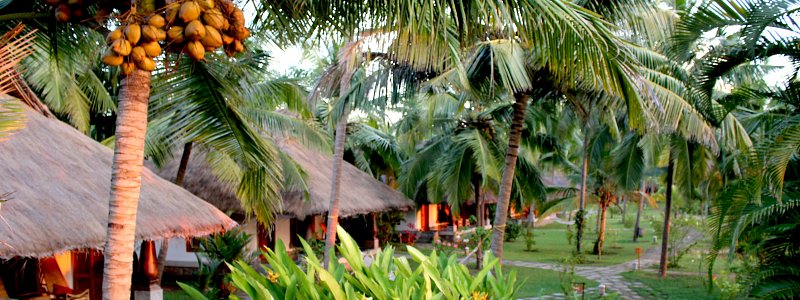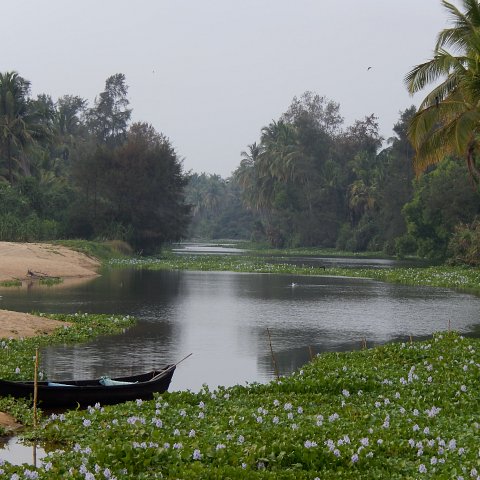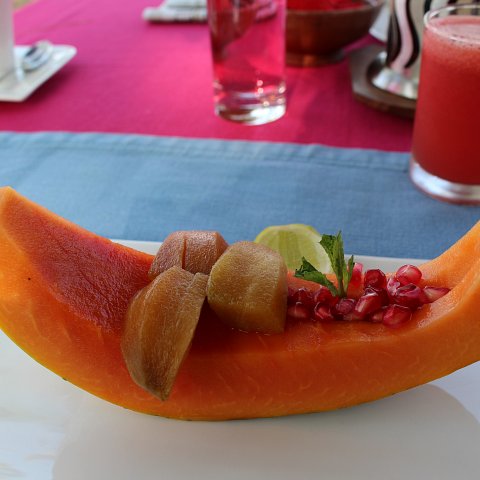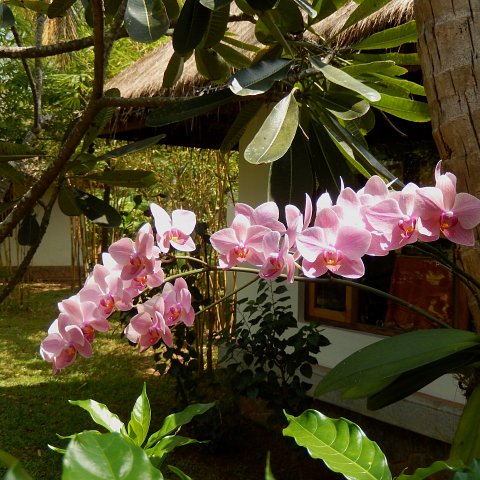Towards A New Definition Of Luxury (Part 2)
In the wake of our recent double success in the 2015 World Luxury Awards, winning Best Beach Resort and Best Scenic Location, here are some more thoughts on the whole idea of luxury which I would like to share with you.
In the world of luxury there is no doubt of two things: despite all the world’s current economic uncertainties, the luxury market is growing rapidly and globally, while at the same time, it is also changing. India provides a good snapshot of these two trends. According to an Assocham-KMPG study, the luxury market here grew at an astonishing 30% in 2013 and is set to grow by a further 20% by 2016 to reach $14 billion. This is partly because of the rising number of those who are young, well-travelled/educated and media savvy. And given the subcontinent’s relentless demographic, for everyone who moves up the consumption chain there are always others waiting to join. Conventional ideas of luxury consumerism are still inspiring vast numbers of nouveaux riches; all in all, India is in the thrall of a lust for brand obsession and possession that defined the luxury market in China a decade ago. And she loves it. On the other hand, some of those at the top are apparently tiring of the glitzy ‘mall and monogramme’ culture and looking farther afield to satisfy their aspirations.
Many Westerners who grew up with the post-independence Oxfam image of the subcontinent may be ignorant of the fact that luxurious consumption is nothing new here. Think of the sumptuous medieval Hindu courts or the dazzling aesthetic refinement of the Mughals. Nearer our time, the very symbol of the luxury lifestyle was the Maharajah, who wowed the world of lesser mortals with his gargantuan consumption of everything from customised Rolls Royces to buckets of Boucheron baubles. And no less today, Indians are seriously devoted materialists. They love their clothes, their food, their jewellery; even a relatively humble sari store will offer the Indian woman shelf upon shelf of unabashed celebration in the alluring form of breath-taking colours and gorgeous designs. The austere Mahatma Gandhi and ‘spiritual India’ notwithstanding, his compatriots have always and incorrigibly been what the sociologists call ‘a display culture’: i.e. ‘if you’ve got it, flaunt it’.
For some modern would-be maharanis, however, the novelty of logo-encrusted goodies have ceased to be such a potent declaration of status and wealth. Non-logo brands – Bottega Veneta, Tom Ford, Versace – are jostling with Louis Vuitton and Gucci to be flashed and admired. Craftsmanship is counting too; bespoke is big in everything from scarves, shoes and handbags to residences and real estate. While ‘made to measure’ elides luxury with exclusivity, paradoxically queueing – something not natural to the India mentality – seems to add a frisson of desirability to the coveted object. In Mumbai and in Delhi, as all over the world, women who lust over a Birkin bag and men who fancy themselves in a Canali suit are prepared to wait as long as is necessary for the delivery. Just like any expectant parent, in fact.
A change of direction
Yet in the midst of all this, there seems to something else happening too: a shift from accumulating things to amassing experiences. According to a 2014 Boston Consulting Group report, while $170 billion was spent that year on personal luxury goods, while a whopping $460 billion went on travel adventures. Many of those dollars were spent by the relatively young - let’s say those born after 1980 - who increasingly define themselves by what they’ve done rather than just what they own. Exotic and customised vacations, adventurous safaris, glamorous destination weddings – all score highly as they can be not only be added to the personal memory banks but also broadcast on social media for the admiration of the wider public. According to another survey, this one by BCG, 51% of luxury consumers in the US now look for ‘enriched experiences’ rather than products. Preferring the feel of active and creative agency to conventionally passive consumerism, such people are choosing kite-surfing over Cartier.
In the top branches of today’s version of what Indian mythology traditionally calls the kalpa vriksha – the fabulous ‘Wish Fulfilling Tree’ - hang the plump and exclusive fruit ready to be picked by the lucky few: the VIP box at Wimbledon, a Paddock View at an F1 meeting. And to cater to such demands there are the top-drawer concierge services, who can get you just about anything anywhere. On the lower branches hang those invitations to the launch party of some celebrity boutique or perfume, if that’s the sort of thing you like. But at whatever level, India has enthusiastically joined the global club, following a pattern initiated in Asia by China a decade ago.
Techno-lux
An interesting aspect of these emerging directions is how the luxury brands themselves are dealing with the great game-changer that is technology. Initially, their traditional ‘touch-me-not’ exclusivity did not feel comfortable in the brave new world of digitalised democracy. Fearing that civilisation was crumbling into crowds, many iconic brands felt vulnerably exposed in the openness, high visibility and easy accessibility of the new world order book. But they soon adapted. A leading example is Burberry, the first to stream fashion shows in 3D, making outfits and accessories featured on the catwalk available to order online immediately after – or even during – the show. Then they opened a state of the art space on London’s Regent Street, where what is called ‘radio-frequency ID’ engages customers to try clothes in front of a mirror that doubles as a visual display. Sales people here use iPads to personalise the clothes virtually and immediately order anything out of stock. Another pioneer is Karl Lagerfeld who has also equipped his concept stores in London and Amsterdam with ‘selfie-ready’ iPads in fitting rooms. Users can apply ‘Karl–inspired’ photo filters before sharing the post via Facebook, Instagram, Twitter etc.
As modern man becomes increasingly feminised, such hi-tech is also being used in the male fashion world, which is growing apace. Alongside this, there are more conventionally bloke-ish digital platforms such as ‘Mercedes-Me’ that gives its customers automated appointments, personal financing, co-create innovative ideas and have access to maintenance data. For example, the usage and wear of brake pads can be tracked, letting the firm know before the owner does that the car needs servicing.
All this has great relevance in a country as geared into technology as is India, where social media use is huge and online reviews are assiduously studied before that final push of the all-important ‘buy’ button. Brands whose names tell the story - Genesis Luxury, Elitify, Exclusively and Stylebop – are doing a roaring trade, selling online and delivering to doorstops. And as in the traditional market stall, sales get a hefty annual boost with the wedding season each Spring, when in addition to all the services offered the bride and groom, luxurious gifts to invitees are part of the norm. Peer group validation seems to be becoming ever more a need of the twenty-first century and the digital world is ideally set up to meet it. As a pointer to the future, fashion, technology and luxury have begun to merge: witness the launch of an Apple watch with its Hermes leather strap or the Mercedes Benz that dispenses with the necessity of input from the driver.
Sustainable luxury?
Global connectedness is also effecting the attitude of consumers. Little by little, the idea of sustainability and ‘giving back’ is developing. A recent GfK study found that 63 % of consumers now buy products that appeal to their beliefs and values. Even the producers are getting on the bandwagon. The ever-innovative Burberry has long been moving in this direction, while Hermes’ Petit H range cannily markets unique products made from its off-cuts. Making money utilising what the old East End tailors called ‘the cabbage’ is smart indeed, but now a new generation of e-tailers - names such as Zady and Everlane – is embracing sustainable and transparent consumerism in a more seriously altruistic way. In this they are following trail-blazers such as the drinks giant Diageo, whose Diageo Foundation supports community investment programmes and awards grants for water and sanitation projects in poor countries. New York’s swanky Ritz Carlton hotel has created a ‘Do Good, Feel Good’ package to benefit the local community food bank, DC Kitchen. Guest get perks in exchange for helping out at the kitchen and the hotel makes a $100 donation in each participant’s name. In Paris, Louis Vuitton is doing its bit to stem the global destruction of bee stocks by making honey from rooftop hives at its headquarters, which it then gives to selected customers, while the shoe brand Tod, under the guidance of its farsighted CEO Diego Della Valle, is involved in many local development projects worldwide, the most visible of which is the restoration of the Colosseum in Rome. All in all, it seems luxury is beginning to find its conscience.
The view from The Hermitage:
From down here in the Kerala paradise garden that is The Hermitage, surrounded by luxuriant greenery and the sound of the Arabian Sea lapping on the unspoilt western shore, we view all these trends in the febrile marketplace out there with a slightly detached interest. Since our founding seven years ago we have gently and patiently pursued a rather different concept of luxury. If we have to use the ‘L’ word, we like to speak of ‘Intelligent Luxury’ and in our view, the way to achieve this is by following the principles of what we call the SLOW LIFE.
S stands for Sustainability:
Serving the richest 20-30 % of the planet’s population, hotels around the world have long consumed far more than their share of the available resources, while the negative impact those gated tourist ghettoes can have on local communities is well known. We reject this unsustainable tourism model of tourism because it represents a linear path leading to the long-term detriment of the environment and the industry itself. By contrast, we champion circular business practices that reduce demands on natural capital and underpin long-term sustainability. A good business is not just a question of profitability, it is one that benefits all who come into its orbit. To be sustainable, businesses should serve society in whatever benign ways they can. And in a healthy and balanced hospitality industry, the guest and host will nourish each other.
L stands for Local:
Unlike some hotels, we do not fly in orchids from Bangkok each day, nor gourmet cheeses from the markets of Paris. The flowers that adorn our rooms are picked fresh each morning by the ladies of our housekeeping and spa teams as they walk to work, and our cheese is most likely to be freshly made Indian paneer, served in a variety of mouth-watering curries and sauces. Located in the middle of a fishing community, we buy their fresh catch each morning to eat that day in our restaurants. We employ many of them as staff in fact, and overall our staff is 95% drawn from the local area (where unemployment is often high). We train them ourselves in The Hermitage style, a great part of which is a natural friendliness and genuine desire to help the guests. All in all, many extended families – totalling perhaps 400 people - benefit directly from our employment policy, and this is not counting those in the local economy who supply us with our many and varied needs.
O stands for Organic:
We do all we can to use only organic food in the restaurants and organic products throughout the hotel, especially in the Ayurvedic Spa. But to be organic means more than just to eat unadulterated food. On a wider level it means to be integrated, and to be integrated implies awareness of a greater whole. This has implications at many different levels: social, economic, ecological, psychological and spiritual.
To take just the ecological aspect. We have a strict ‘no plastic’ policy, which includes a ban on so-called ‘mineral’ water in plastic bottles. For one thing, they are an ecological disaster, particularly in Kerala which has large numbers of tourists and almost zero ecological awareness. For another, we already have perfectly delicious water from our own water table, which we purify further by the most advanced method of ‘reverse osmosis’. Against a global background of groundwater increasingly being bought up by private corporations, we just don’t want any of those polluting plastic bottles here. Still unconvinced? Try spelling Evian backwards.
When we opened in 2008 our water policy was greeted with incredulity by the hotel industry in India (and some guests!) but as they say, huge oak trees from tiny acorns spring. Today we are gratified to see that some of the big boys in hospitality are going the same way. Just a couple of examples: in 2012 the Rasa Sayang Spa in Penang banned all plastic water and began bottling their own and about the same time the Grand Spa in Costa Rica’s Tabacon did the same.
W stands for Wellness:
We believe that the default setting for a healthy human being is a natural and inherent contentment, a state which yoga philosophy calls santosh. Because so few of us enjoy this state spontaneously, we have to go through all sorts of procedures to try and recover it. Thus was born the ‘Wellness industry’, now worth billions each year. In fact, adherence to few simple principles can help enormously in this regard: a regular daily routine with enough rest, good wholesome food, adequate physical exercise, avoidance of too many hours spent staring at a screen and a simple, unforced meditation practice to rest, calm and sharpen the mind. Make sure you keep good, nourishing company and don’t fill your mind with distressing stuff you are powerless to do anything about. This simple wisdom informs our days here, in addition to which our Priya Ayurvedic Spa is always on hand to offer advice and treatments to correct any physical and emotional imbalances that are preventing us enjoying life to the full.
L stands for Learning:
As well as complete relaxation - a new experience for many who come here - we offer our guests several valuable learning opportunities. Yoga and meditation are practical disciplines taught under expert guidance as time-tested ways to unknot the mind and body. We have a specialist library for those interested in India and her cultures, and regular visits to nearby religious and festival events are possible. Our Cultural Director and co-founder, the author and indologist Alistair Shearer, is often on site and he gives informal lectures on all aspects of India’s history, religion, art and architecture for those who are interested. Nature lovers can take bird-watching tours accompanied by expert local ornithologists; cooking classes are available daily from our chefs.
The peaceful and tranquil environment here is a natural place for reflection, somewhere you can take stock of your life’s journey. So who knows? You might also discover a thing or two about yourself.
I stands for Inspiration:
Inspiration means literally ‘breathing in’ – taking into yourself unpolluted air, refreshing life-energy, vitality, enthusiasm. This is why for all of those seeking to recharge their batteries naturally, we advocate joining The Hermitage family. For the rest of your life.
FE stands for Fun Experiences:
Lest all the above sounds a little too worthy, we should not forget that life is to be enjoyed. In fact we have a serious duty not to take anything too seriously! To the Malabaris, fun is simple, human, analogue and natural. So whether you are drawn to sunning, swimming, walking, bike-riding, having long lazy meals spiced with good conversation, with the option of visiting festivals and markets and interacting with the locals, there is lots of fun to be had here.








